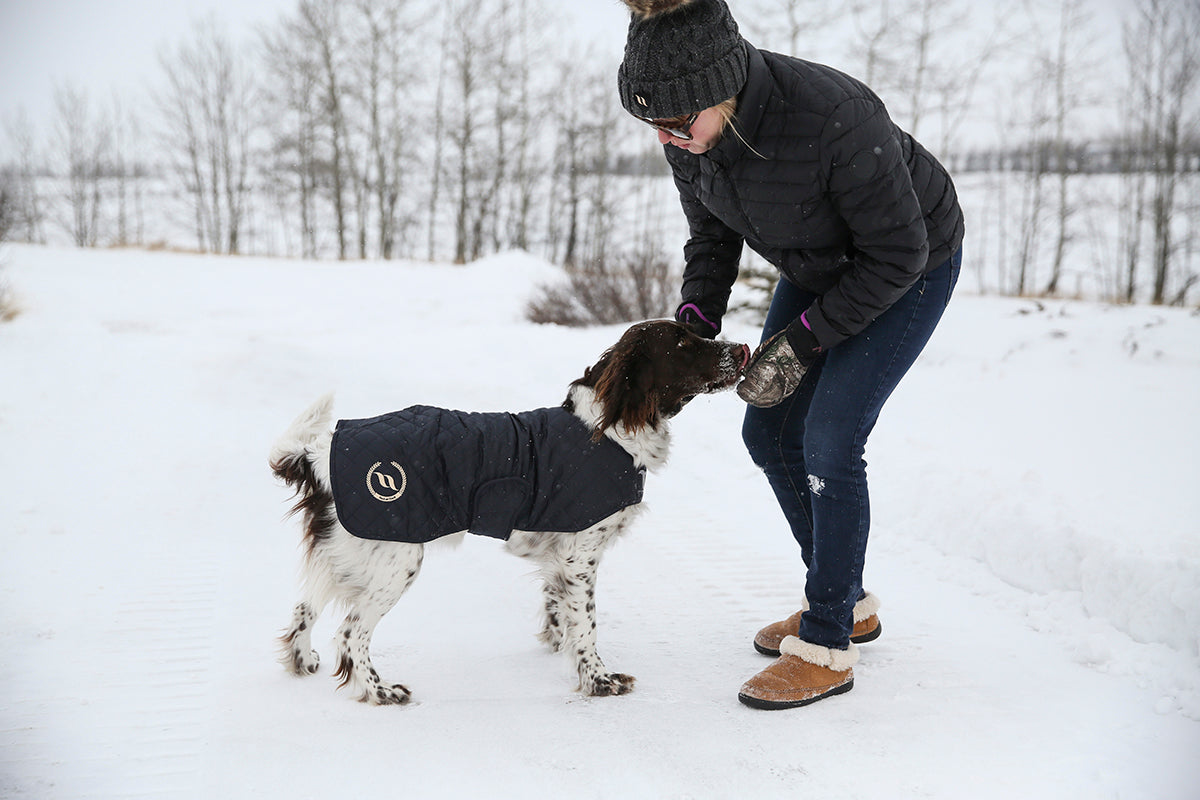Pets add value to our lives in countless ways. While most people adopt pets for companionship, owning a dog can also help improve your mental and physical health.
Research suggests dogs can help improve mood, relieve stress, enhance social skills, support heart health, and increase physical activity. Dogs can even learn to detect early signs of a medical emergency or perform other tasks that help owners with health concerns stay safe.
Keep reading to learn more about the top six health benefits of owning a dog.
Mental Health Benefits
Professional therapy dogs are commonly used to support mental health in people experiencing stress from school, work, illness, or a traumatic event. However, studies show pet dogs can also help their owners' mental health.
Improved Mood
There's a reason dogs are known as man's best friend.
Dogs are loyal and loving companions who form deep bonds with their owners. This companionship helps dog owners feel less lonely and happier than non-pet owners.
Research suggests that dog owners show fewer symptoms of depression than non-pet owners. Dog owners are responsible for their pet's well-being, and caring for their dogs helps give them a purpose in life.
Several studies have found that interacting with dogs increases oxytocin, serotonin, and dopamine levels. These neurochemicals are associated with improved mood and decreased depression. Dog owners who interact with their pets daily experience the most significant benefits.
Stress Relief
The physiological effects dogs have on their owners can also help relieve stress and anxiety.
Stress can manifest itself in ways that significantly impact bodily function. Increased cortisol, the hormone associated with stress, is linked to elevated heart rates, tense muscles, and shallow breathing.
Interacting with a dog can help relieve some of these symptoms and manage stress. Petting a dog can also help lower blood pressure and increase relaxation. Research suggests these effects contribute to lower cortisol levels in dog owners.
Better Social Skills
Humans and dogs are both social beings. All humans need social interaction to thrive. As pack animals, dogs rely on their family to feel safe and secure.
Owning a dog can help you develop social skills, such as empathy and confidence. These skills help you form stronger bonds with your dog and friendships with other humans.
Dogs also open up new opportunities for their owner to meet others and initiate conversation while going for a walk or visiting the dog park. A shared love of dogs is the perfect icebreaker.
Physical Health Benefits
Owning a dog isn't just beneficial for your mental health. It can also help your physical health.
Improved Cardiovascular Health
Reduced anxiety and stress help improve cardiovascular health in dog owners. Studies have linked lower blood pressure to a reduced risk of heart disease, which may contribute to longer life expectancy.
One study found dog owners who have experienced a heart attack in the past have a lower risk of suffering from another cardiac event than non-pet owners.
Improved cardiovascular health in dog owners may also be linked to increased activity. Taking your dog for daily walks is an effective form of cardio exercise, which supports better health.
Medical Alert Dogs
Some dogs can learn how to detect the early signs of disease or a health emergency.
Medical alert dogs can help detect low blood sugar in owners with diabetes or the beginning signs of seizures in owners with chronic health conditions. Owners with severe allergies may also have dogs trained to help them avoid food containing the allergen.
Research suggests dogs can even learn to recognize types of cancer and other diseases in patients. Their powerful sense of smell allows them to detect scents associated with these conditions that go unnoticed by humans.
Increased Physical Activity
Dogs are ideal pets for people who want to be more active.
Current guidelines recommend that adults aim for at least 150 minutes of moderate aerobic activity weekly. Dog owners often exceed this recommendation between daily walks and periodic playtimes.
Daily exercise with your dog will help you establish a more regular workout routine, which can help improve cardiovascular health, increase stamina and endurance, and improve overall physical fitness.
Many dog breeds enjoy extensive exercise and can accompany you on your daily hikes, runs, and outdoor adventures. This exercise will improve your dog’s health as much as it will enhance your own. Just remember to schedule adequate time for you both to recover.
Prepare, Perform, Recover
Your dog helps you stay healthy. Help him feel his best with Back on Track.
Check out our collections of dog coats, leg wraps, dog beds, and other pet products to ensure your best friend has everything he needs to prepare, perform, and recover.
Learn More from Back on Track
Follow Back on Track on Facebook and Instagram for more tips and insights.
Sign up for the Back on Track Bulletin to never miss a new blog.
References
- Ramirez, M. et al. Benefits of dog ownership: Comparative study of equivalent samples. J Vet Behav. 2014.
- Utz, R. Walking the Dog: The Effect of Pet Ownership on Human Health and Health Behaviors. Soc Indic Res. 2013.
- Barker, S. et al. Exploratory Study of Stress-Buffering Response Patterns from Interaction with a Therapy Dog. Anthrozoos. 2010.










